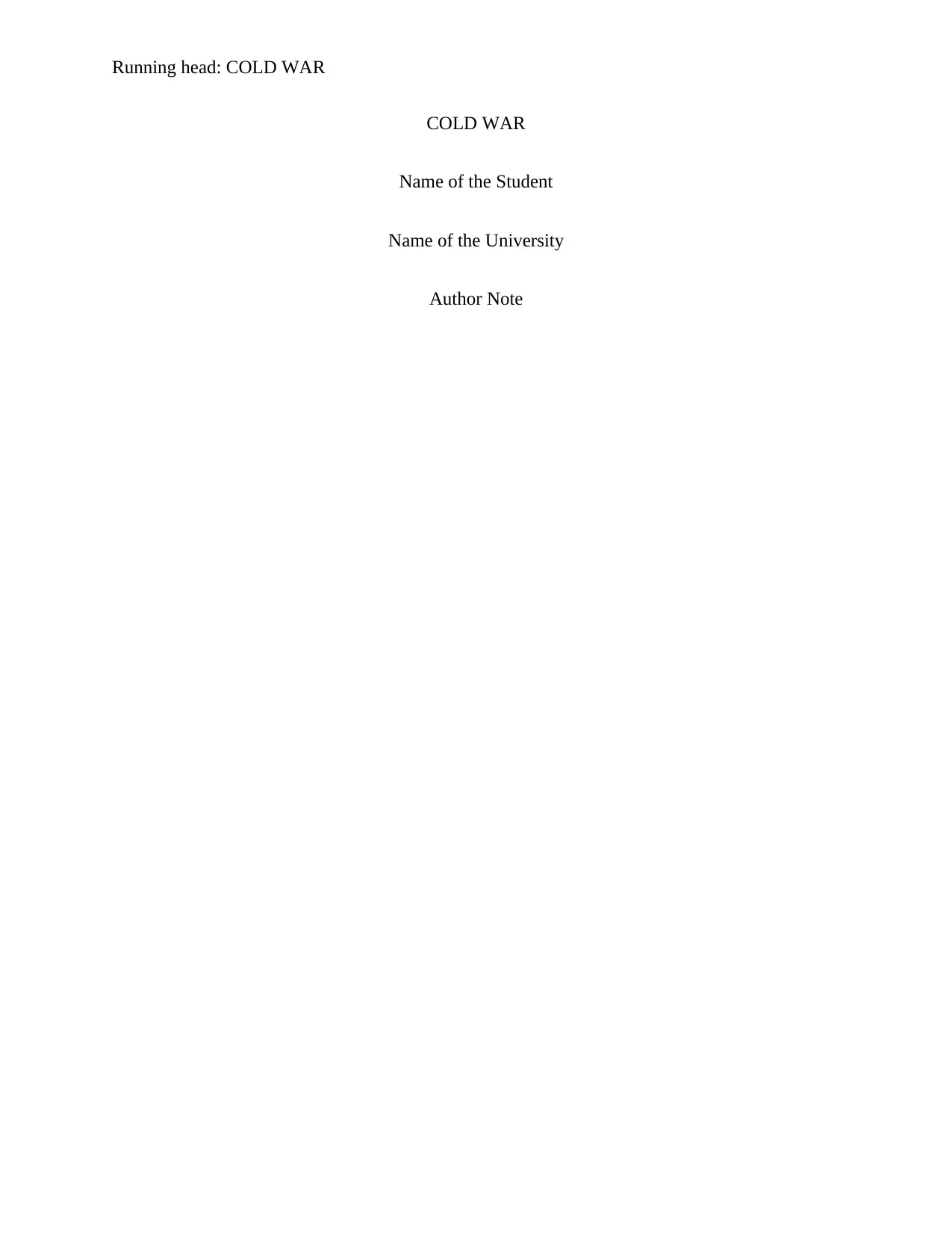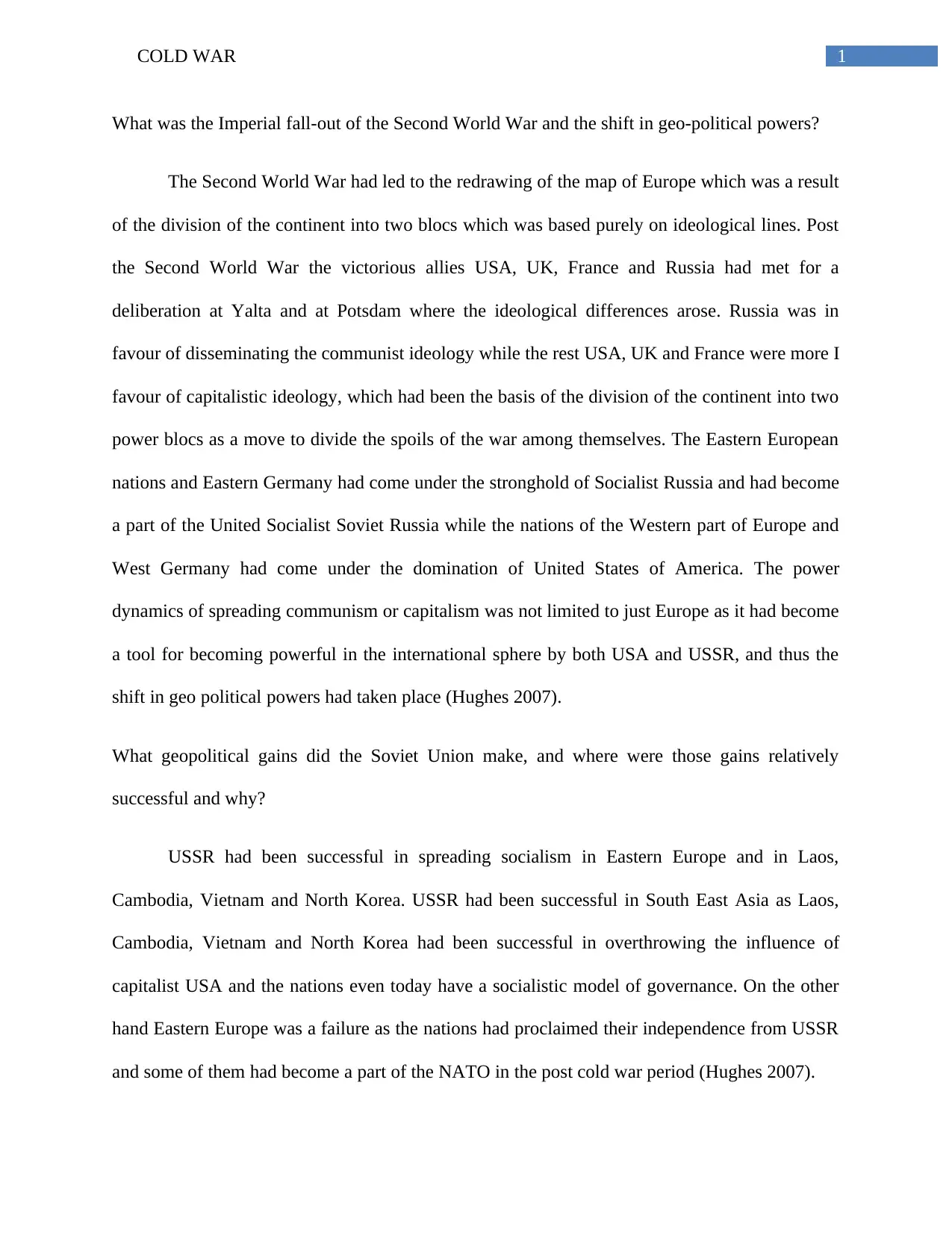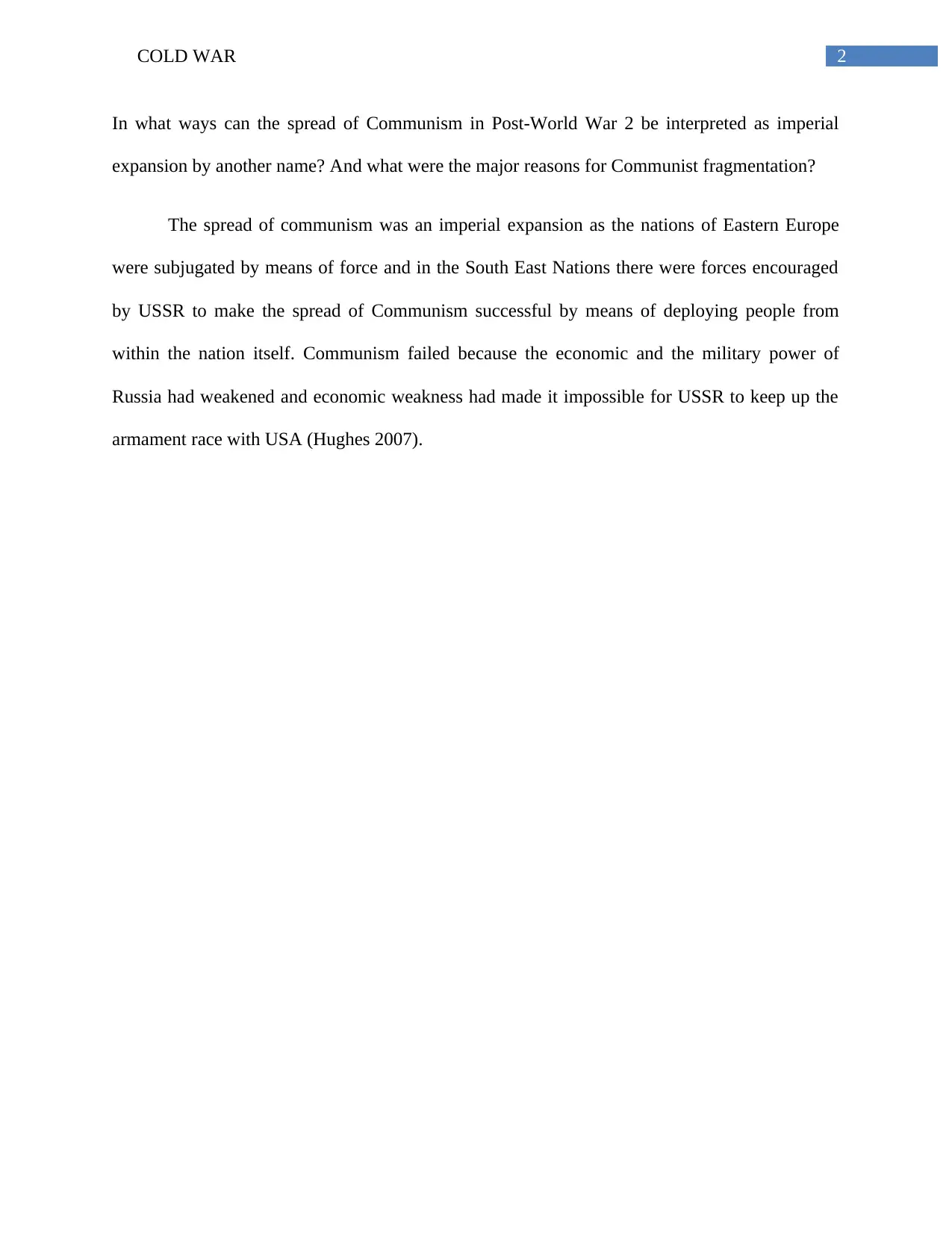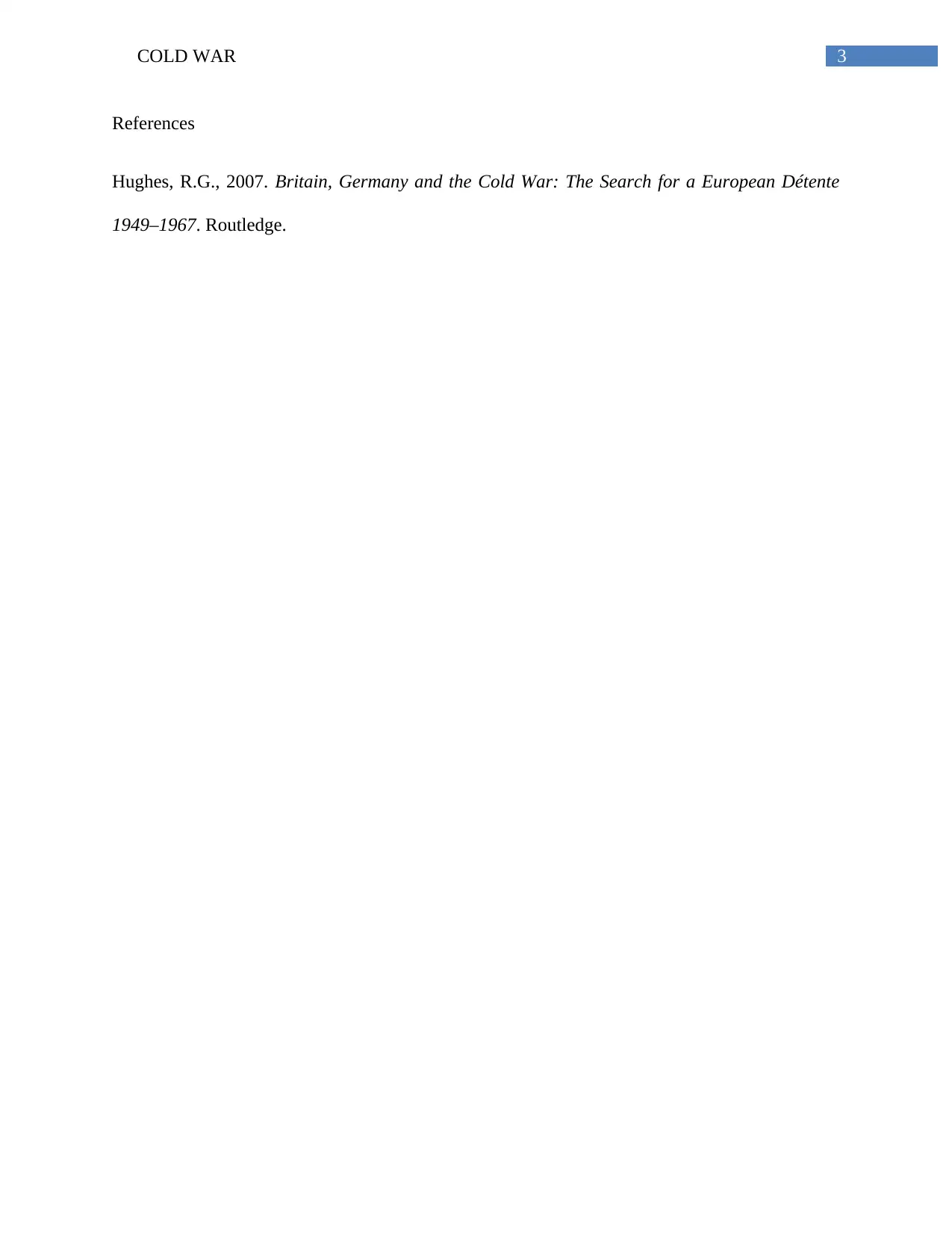Cold War: Imperial Fallout, Geopolitical Shifts, and Communist Spread
VerifiedAdded on 2023/03/29
|4
|482
|316
Essay
AI Summary
This essay examines the imperial fallout of World War II and the resulting shift in geopolitical powers, focusing on the ideological division between the USA and USSR. It discusses the Soviet Union's geopolitical gains, particularly in Eastern Europe and Southeast Asia, analyzing the successes and failures of spreading communism. The essay also interprets the spread of communism as a form of imperial expansion, highlighting the reasons for its eventual fragmentation, including the weakening of Russia's economic and military power. Desklib offers a wealth of similar essays and study resources for students.
1 out of 4











![[object Object]](/_next/static/media/star-bottom.7253800d.svg)